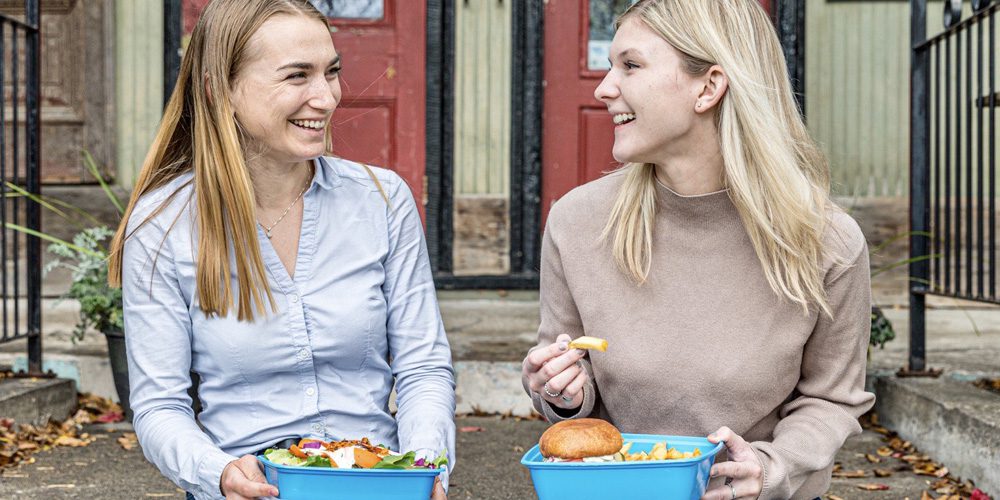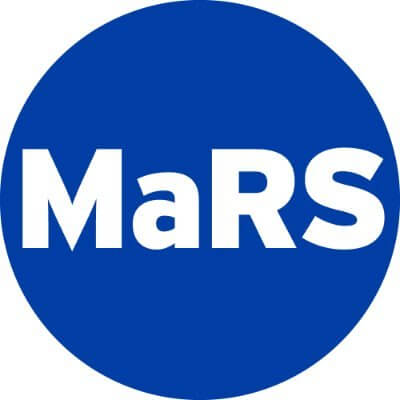Home » How women are breaking new ground in climate tech
How women are breaking new ground in climate tech

Ventures supported by the RBC Women in Cleantech Accelerator are pushing clean technologies in exciting new directions.
New solutions are urgently needed to our intensifying climate crisis — and women are playing vital roles in supplying them. From making textiles out of waste to putting carbon emissions to good use, women-led ventures are finding new ways to reduce our environmental impact throughout the economy.
“Diversity of thought is important in every sector, but especially so when confronting climate change. We need to bring as many perspectives and ideas to the table as we can,” says Leah Perry, a senior manager supporting cleantech ventures at MaRS.
Perry leads the RBC Women in Cleantech Accelerator at MaRS which addresses the underrepresentation of women entrepreneurs in cleantech. The accelerator, which builds on the Women in Cleantech Challenge launched in 2018, helps founders develop their businesses, grow their leadership skills and forge connections with government, investors, partners and clients. On International Women’s Day, for instance, the founders of the 10 companies in the accelerator’s current cohort will be in New York pitching to a room of potential investors and partners at an event hosted at the Canadian consulate.
With demand for clean technologies growing, Perry says the ventures the program supports are advancing rapidly. She points to Opalia, which creates milk using mammary cells and has reduced its production costs by 98 percent in the space of a few months, and Solaires, which is at the forefront of efforts to create thinner, translucent solar panels with a product it calls Solar Ink.
But the wins for women-led ventures are coming in fast. Here are four ways that women are breaking ground in climate tech.
Kicking disposable packaging to the curb
From takeout containers to bubble wrap, the world is addicted to disposable packaging. WIC cohort member Friendlier is helping change all that. The Guelph-based company makes reusable alternatives to disposable containers that are tracked by QR code and provides its food company clients with data about the carbon emissions they’re saving. Its revenue grew 500 percent last year and its containers are now used by over 200 businesses across Ontario, including Loblaws Companies and The Compass Group, which operates corporate and university cafeterias.
Friendlier CEO Kayli Dale attributes its success to its convenience — businesses don’t have to adjust their processes. “We provide a completely turnkey system and clients use the containers as normal.” The startup handles all the logistics required for the reusable containers — everything from sanitization to collection and delivery — to make the transition simple. “Our goal is to make it as easy for businesses and consumers to use reusable packaging as it is for them to use single-use packaging right now,” Dale says.
Making carbon recycling possible
Clean technologies are often complicated pieces of machinery. But Hyperion Global Energy co-founder and president Heather Ward explains the company’s process simply: “We turn dirty air into dollars.” That enticing prospect is winning over major partners for the company, which creates a system that extracts carbon dioxide from waste industrial emissions and uses it to make valuable minerals such as calcium carbonate.
Hyperion reached the finals of the Carbon XPRIZE in 2018 with a prototype of the device, and it was supported by the RBC Women in Cleantech Accelerator last year as it successfully validated and scaled up its technology by 500 percent. Hyperion has now partnered with Lafarge Canada, the country’s largest supplier of sustainable building materials, and is currently piloting the first full-sized version of its carbon recycling system — which was designed and built entirely in Canada — at Lafarge’s cement plant near Kingston, Ont. The system is contained in a 40-foot shipping container and can recycle 1,000 tonnes of waste carbon dioxide a year into minerals that will be used by Lafarge in making high-performance concrete.
Ward says a key advantage of Hyperion’s system is that — in contrast to some other approaches to carbon capture and utilization — it is based on well-understood technology that has been developed over a decade by her co-founder, engineer Jerry Flynn. “We’re ready to work with industrial partners to pilot and scale our technology and get into commercialization rapidly.”
Raising capital (and lots of it)
Even as the venture capital market for tech cools, women-led cleantech companies are finding sources of funding. Genuine Taste, which produces cultivated fats that make meat alternatives tastier, recently received an investment from Big Idea Ventures, a global alternative protein fund, and also from Sustainable Development Technology Canada. Toronto-based Genecis Bioindustries, a member of the Women in Cleantech Challenge, turns organic waste into biodegradable plastic and recently received an investment of an undisclosed amount from Amazon’s climate tech fund. Meanwhile, several ventures are preparing to announce raises worth more than $3.5 million in total.
Women-led companies are also boosting their balance sheets by cleaning up at competitions. Perry points out that half the finalist companies in the federal government’s Food Waste Reduction Challenge are current or former members of the Women in Cleantech program. Aruna Revolution, which makes compostable menstrual pads, ALT TEX, which turns food waste into fabrics, and Genecis will each receive up to $450,000 to test their technology in an operational environment. They are competing to win one of two grand prizes of up to $1 million.
Creating new markets
There’s a first time for everything, and a few of the WIC cohort members have embarked on brand new pilot programs to test their innovations on the market and in the real world. MycoFutures creates textiles by cultivating mycelium, the root system of fungi. One of their most exciting innovations is a mycelium-based leather. Now, they’re working on a roadmap to commercialization and they have several brands lined up for material samples to use in their products.
Bug Mars, another startup in the current WIC cohort, has developed AI-powered software that makes it easier for farmers to produce proteins from bugs at large scale. The company recently secured agreements with three of North America’s most established producers, a poultry farm and an academic institution to pilot its tech, and has other other interested customers in its pipeline.
Find out more about how the companies in the RBC Women in Cleantech Accelerator are building a sustainable future.
Photography: Friendlier founders Kayli Dale and Jacquie Hutchings. Courtesy of Friendlier.
MaRS Discovery District
https://www.marsdd.com/
MaRS is the world's largest urban innovation hub in Toronto that supports startups in the health, cleantech, fintech, and enterprise sectors. When MaRS opened in 2005 this concept of urban innovation was an untested theory. Today, it’s reshaping cities around the world. MaRS has been at the forefront of a wave of change that extends from Melbourne to Amsterdam and runs through San Francisco, London, Medellín, Los Angeles, Paris and New York. These global cities are now striving to create what we have in Toronto: a dense innovation district that co-locates universities, startups, corporates and investors. In this increasingly competitive landscape, scale matters more than ever – the best talent is attracted to the brightest innovation hotspots.


